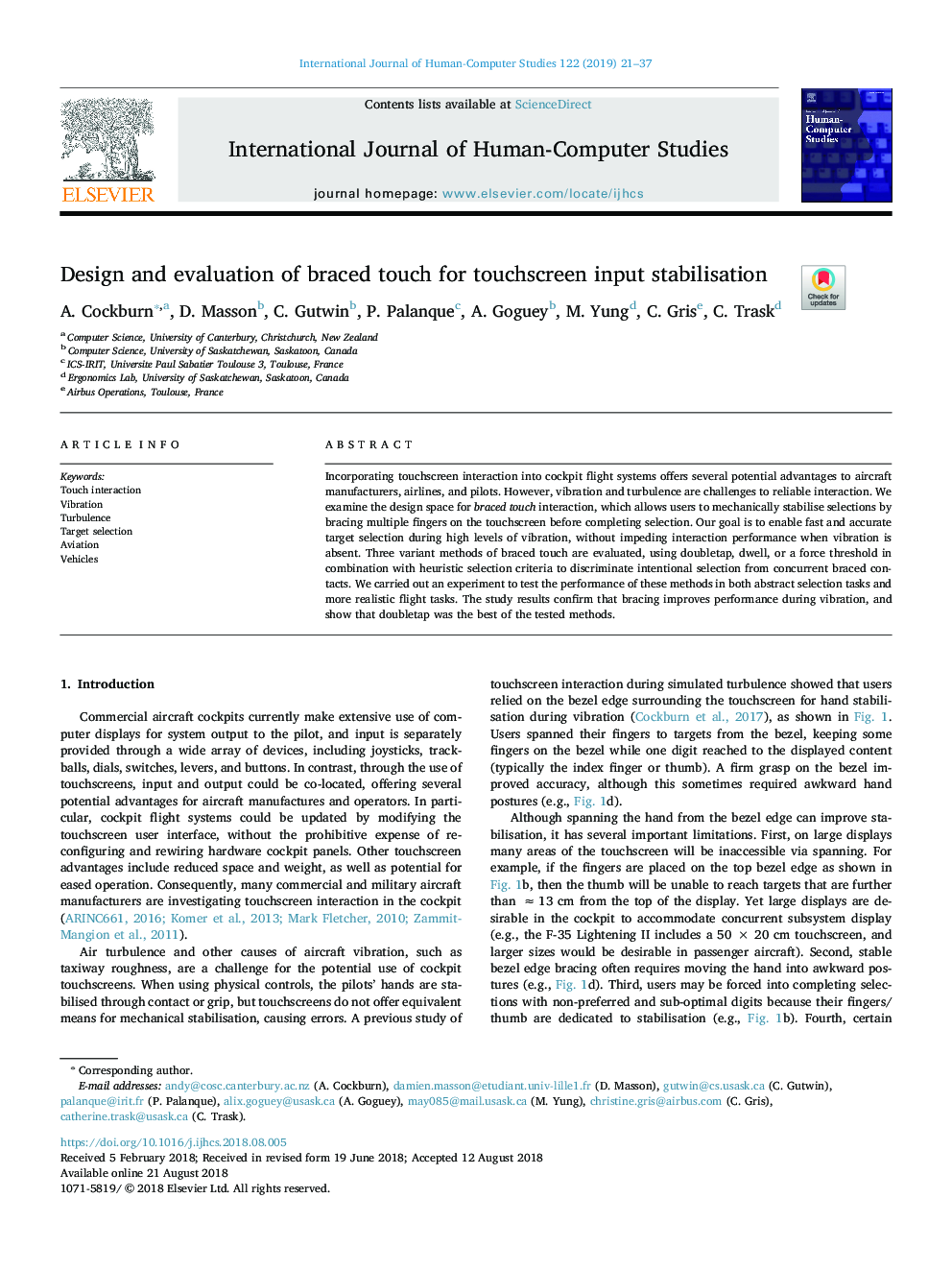| Article ID | Journal | Published Year | Pages | File Type |
|---|---|---|---|---|
| 8953557 | International Journal of Human-Computer Studies | 2019 | 17 Pages |
Abstract
Incorporating touchscreen interaction into cockpit flight systems offers several potential advantages to aircraft manufacturers, airlines, and pilots. However, vibration and turbulence are challenges to reliable interaction. We examine the design space for braced touch interaction, which allows users to mechanically stabilise selections by bracing multiple fingers on the touchscreen before completing selection. Our goal is to enable fast and accurate target selection during high levels of vibration, without impeding interaction performance when vibration is absent. Three variant methods of braced touch are evaluated, using doubletap, dwell, or a force threshold in combination with heuristic selection criteria to discriminate intentional selection from concurrent braced contacts. We carried out an experiment to test the performance of these methods in both abstract selection tasks and more realistic flight tasks. The study results confirm that bracing improves performance during vibration, and show that doubletap was the best of the tested methods.
Related Topics
Physical Sciences and Engineering
Computer Science
Artificial Intelligence
Authors
A. Cockburn, D. Masson, C. Gutwin, P. Palanque, A. Goguey, M. Yung, C. Gris, C. Trask,
